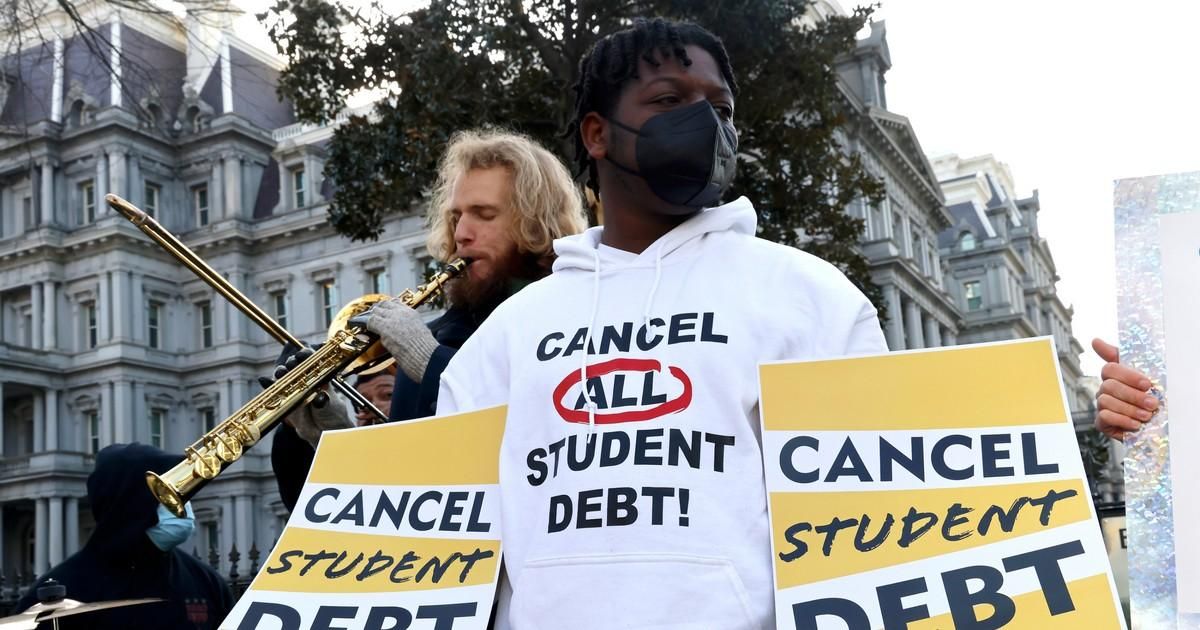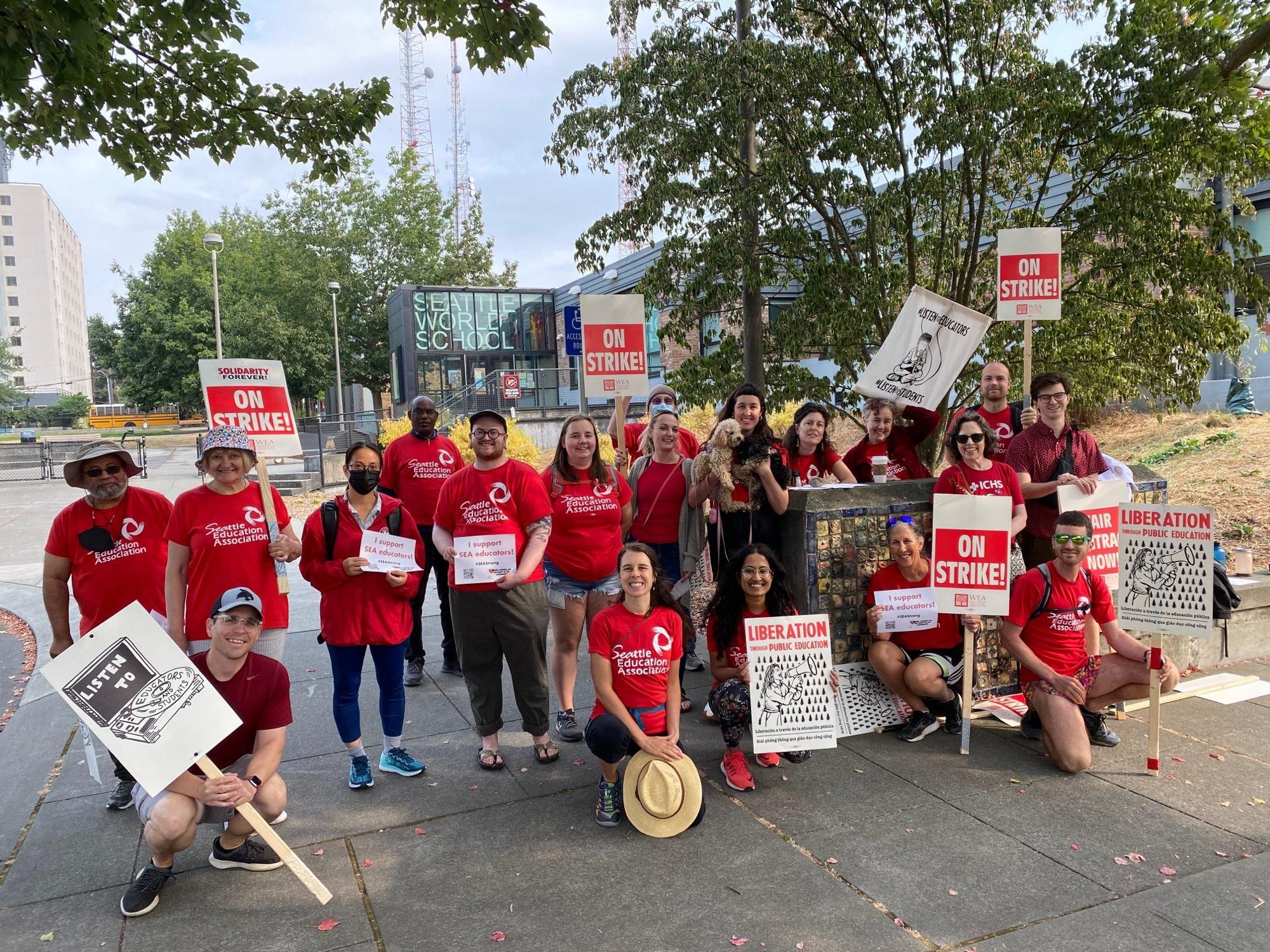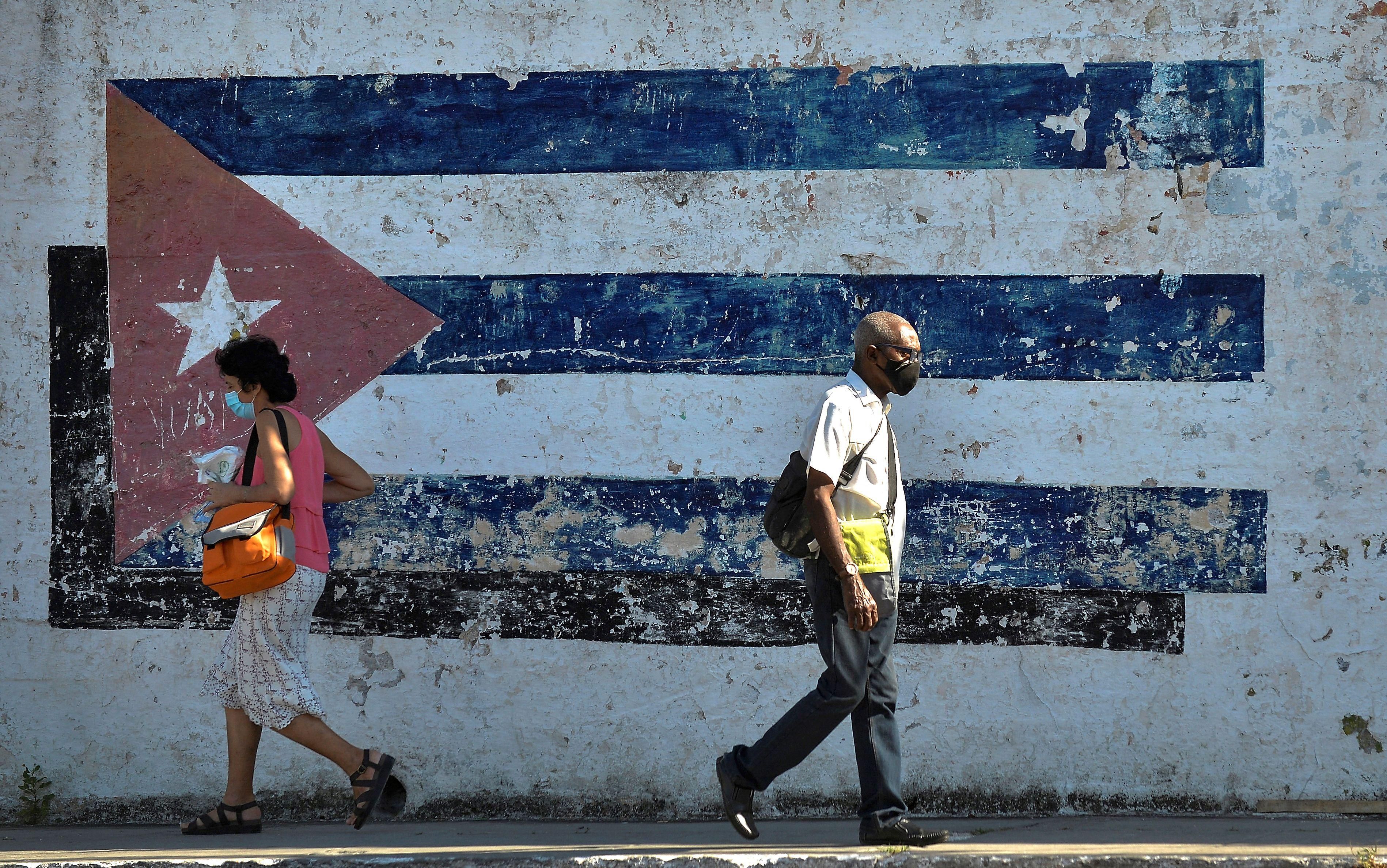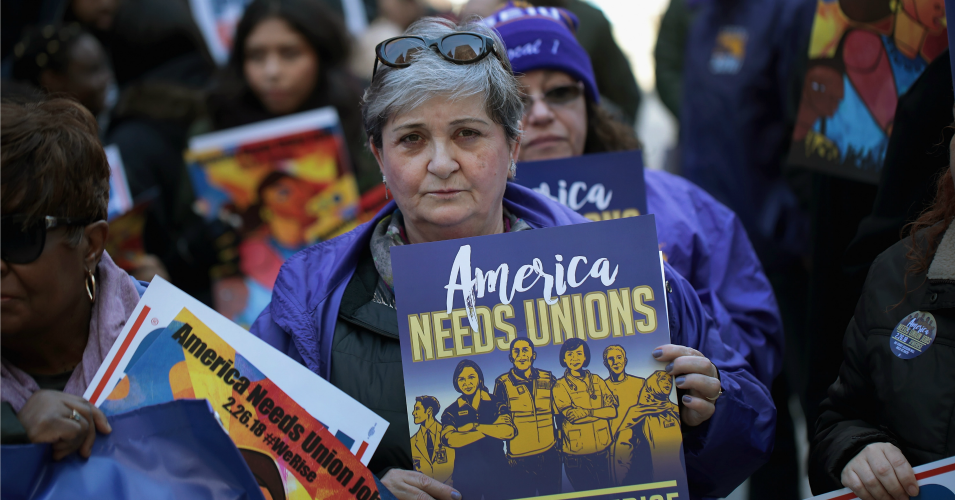Anger over past, indifference meet queen’s death in India

1 / 13
Indian Prime Minister Narendra Modi speaks at the inauguration of the revamped Central Vista Avenue at the India Gate in New Delhi, India, Thursday, Sept. 8, 2022. Modi urged the country to shed its colonial ties in a ceremony to rename Rajpath, a boulevard that was once called Kingsway after King George V, Modi called it a "symbol of slavery" under the British Raj. (AP Photo/Manish Swarup)
KRUTIKA PATHI and BHUMIKA SARASWATI
Mon, September 12, 2022
NEW DELHI (AP) — Just hours before news of Queen Elizabeth II's death spread, Prime Minister Narendra Modi delivered a fiery speech urging India to shed its colonial ties in a ceremony to rename a boulevard that once honored King George V.
Rajpath, formerly called Kingsway, was a “symbol of slavery” under the British Raj, he said. Instead, under the newly named Kartavya Path that leads to the iconic India Gate, “a new history has been created,” Modi beamed.
His speech last Thursday was the latest in a concerted drive to purge India of its colonial relics. It was also a clear sign that the country, once the largest of Britain's colonies that endured two centuries of imperial rule, has moved on.
The renovated avenue now boasts a black granite statue of Indian freedom fighter Subhas Chandra Bose, in the place where a mold of King George V, Elizabeth's grandfather, once stood.
The queen’s death provoked sympathies to a deeply respected figure from some while for a few others, it jogged memories of a bloody history under the British crown. But among most regular Indians, the news was met with an indifferent shrug.
The British monarchy “holds precisely zero relevance to Indians today — they are of no importance,” said Kapil Komireddi, author of “Malevolent Republic: A Short History of the New India.”
British rule shaped the country in significant ways, but India has since overtaken the British economy in size.
“The country has come into its own ... As a rising power, India can gain a lot from the U.K. but the U.K. can gain a whole lot more from India,” Komireddi added.
On Thursday, Modi penned a heartfelt note, calling the queen “a stalwart of our times,” while the government declared a day of mourning. But for most Indians born a generation after independence from the British in 1947, there is little attachment to the queen or the royal family.
Sankul Sonawane, 20, was at home when he heard the news, which had “no impact” on him. “We have no sense of emotional connection with the queen. She was a monarch and I don’t believe in the idea of a monarchy.”
Dhiren Singh, a 57-year-old entrepreneur in New Delhi, felt the same way. “I do not think we have any place for kings and queens in today’s world, because we are the world’s largest democratic country,” he said.
Elizabeth visited India three times during her reign and was the first monarch to tour the newly freed country, cementing the start of fresh ties with Britain. After her coronation in 1953, she arrived in the capital New Delhi in 1961, where she addressed a massive crowd and nearly a million people lined up along streets to catch a glimpse of her and her husband, Prince Philip.
Darshan Paul was 10 or 11 years old when she stood along a road in New Delhi and waved an Indian flag at the queen. “I remember her gloved hand waving back at me and was so impressed,” Paul, now 71, said.
There was abundant excitement and curiosity around her visit, Paul recalled, as she and her friends poured over newspaper photos of the queen and were dazzled by the gowns she wore.
But it was a different time then, Paul said, as she acknowledged that the traditional bond some Indians once held with the royal family has morphed dramatically since.
“To young Indians today, they seem like any other high-profile celebrity family - you might follow news of them because you want to know what is happening behind closed doors. But beyond the glamor and celebrity allure, they don’t hold any significance any more.”
If her son, who was formally proclaimed King Charles III over the weekend, were to make an official visit to India, “it will certainly not matter as much,” Paul added.
The queen’s last visit in 1997 was tinged with controversy when she traveled to a memorial dedicated to hundreds of unarmed Indians who were killed by British colonial forces in 1919, amid calls for an apology over the Jallianwala Bagh massacre.
For many, the royal family remains a hallmark of a deeply painful history. Colonial rule is still remembered for the extraordinary violence and suffering it spawned, from numerous famines and economic exploitation to ultimately an unprecedented level of bloodshed in the partition of India and Pakistan.
Scrolling through social media after the news, 25-year-old Sumedha Chatterjee said the tweets in support of the queen felt almost like people had forgotten about all the “loot and plunder” the British monarchy oversaw. “They built their empire on the backs of the so-called third world,” she added.
Just hours after her death, Indian social media lit up with renewed calls for the return of the famous Koh-i-Noor, the 106-carat diamond discovered in India that is part of the British crown jewels.
“If the king is not going to wear (the) Koh-i-Noor, give it back,” quipped one user.
Ever since gaining independence, India has moved to shed its colonial ties, including changing back the names of a clutch of cities that were renamed during British rule. In the 1960s, officials removed figures of British officials and royalty from public view — the statue of King George V, which stood tall under the canopy of India Gate, was moved to Coronation Park, a graveyard or final resting place for imperial symbols in the capital.
And under Modi, there has been renewed vigor to reclaim India’s past, which has seen the government scrub away colonial-era street names, some laws and even flag symbols.
Such gestures “represent a new India” which has nothing to do with the monarchy, said Archana Ojha, a professor of history at Delhi University. She added, though, that the country’s imperial history can’t be hidden away.
“We may not need to cherish some of the legacies, but we need to preserve them to teach our future generations. We cannot just erase it completely,” she said.
___
Associated Press journalist Rishi Lekhi contributed to this report.

1 / 13
Indian Prime Minister Narendra Modi speaks at the inauguration of the revamped Central Vista Avenue at the India Gate in New Delhi, India, Thursday, Sept. 8, 2022. Modi urged the country to shed its colonial ties in a ceremony to rename Rajpath, a boulevard that was once called Kingsway after King George V, Modi called it a "symbol of slavery" under the British Raj. (AP Photo/Manish Swarup)
KRUTIKA PATHI and BHUMIKA SARASWATI
Mon, September 12, 2022
NEW DELHI (AP) — Just hours before news of Queen Elizabeth II's death spread, Prime Minister Narendra Modi delivered a fiery speech urging India to shed its colonial ties in a ceremony to rename a boulevard that once honored King George V.
Rajpath, formerly called Kingsway, was a “symbol of slavery” under the British Raj, he said. Instead, under the newly named Kartavya Path that leads to the iconic India Gate, “a new history has been created,” Modi beamed.
His speech last Thursday was the latest in a concerted drive to purge India of its colonial relics. It was also a clear sign that the country, once the largest of Britain's colonies that endured two centuries of imperial rule, has moved on.
The renovated avenue now boasts a black granite statue of Indian freedom fighter Subhas Chandra Bose, in the place where a mold of King George V, Elizabeth's grandfather, once stood.
The queen’s death provoked sympathies to a deeply respected figure from some while for a few others, it jogged memories of a bloody history under the British crown. But among most regular Indians, the news was met with an indifferent shrug.
The British monarchy “holds precisely zero relevance to Indians today — they are of no importance,” said Kapil Komireddi, author of “Malevolent Republic: A Short History of the New India.”
British rule shaped the country in significant ways, but India has since overtaken the British economy in size.
“The country has come into its own ... As a rising power, India can gain a lot from the U.K. but the U.K. can gain a whole lot more from India,” Komireddi added.
On Thursday, Modi penned a heartfelt note, calling the queen “a stalwart of our times,” while the government declared a day of mourning. But for most Indians born a generation after independence from the British in 1947, there is little attachment to the queen or the royal family.
Sankul Sonawane, 20, was at home when he heard the news, which had “no impact” on him. “We have no sense of emotional connection with the queen. She was a monarch and I don’t believe in the idea of a monarchy.”
Dhiren Singh, a 57-year-old entrepreneur in New Delhi, felt the same way. “I do not think we have any place for kings and queens in today’s world, because we are the world’s largest democratic country,” he said.
Elizabeth visited India three times during her reign and was the first monarch to tour the newly freed country, cementing the start of fresh ties with Britain. After her coronation in 1953, she arrived in the capital New Delhi in 1961, where she addressed a massive crowd and nearly a million people lined up along streets to catch a glimpse of her and her husband, Prince Philip.
Darshan Paul was 10 or 11 years old when she stood along a road in New Delhi and waved an Indian flag at the queen. “I remember her gloved hand waving back at me and was so impressed,” Paul, now 71, said.
There was abundant excitement and curiosity around her visit, Paul recalled, as she and her friends poured over newspaper photos of the queen and were dazzled by the gowns she wore.
But it was a different time then, Paul said, as she acknowledged that the traditional bond some Indians once held with the royal family has morphed dramatically since.
“To young Indians today, they seem like any other high-profile celebrity family - you might follow news of them because you want to know what is happening behind closed doors. But beyond the glamor and celebrity allure, they don’t hold any significance any more.”
If her son, who was formally proclaimed King Charles III over the weekend, were to make an official visit to India, “it will certainly not matter as much,” Paul added.
The queen’s last visit in 1997 was tinged with controversy when she traveled to a memorial dedicated to hundreds of unarmed Indians who were killed by British colonial forces in 1919, amid calls for an apology over the Jallianwala Bagh massacre.
For many, the royal family remains a hallmark of a deeply painful history. Colonial rule is still remembered for the extraordinary violence and suffering it spawned, from numerous famines and economic exploitation to ultimately an unprecedented level of bloodshed in the partition of India and Pakistan.
Scrolling through social media after the news, 25-year-old Sumedha Chatterjee said the tweets in support of the queen felt almost like people had forgotten about all the “loot and plunder” the British monarchy oversaw. “They built their empire on the backs of the so-called third world,” she added.
Just hours after her death, Indian social media lit up with renewed calls for the return of the famous Koh-i-Noor, the 106-carat diamond discovered in India that is part of the British crown jewels.
“If the king is not going to wear (the) Koh-i-Noor, give it back,” quipped one user.
Ever since gaining independence, India has moved to shed its colonial ties, including changing back the names of a clutch of cities that were renamed during British rule. In the 1960s, officials removed figures of British officials and royalty from public view — the statue of King George V, which stood tall under the canopy of India Gate, was moved to Coronation Park, a graveyard or final resting place for imperial symbols in the capital.
And under Modi, there has been renewed vigor to reclaim India’s past, which has seen the government scrub away colonial-era street names, some laws and even flag symbols.
Such gestures “represent a new India” which has nothing to do with the monarchy, said Archana Ojha, a professor of history at Delhi University. She added, though, that the country’s imperial history can’t be hidden away.
“We may not need to cherish some of the legacies, but we need to preserve them to teach our future generations. We cannot just erase it completely,” she said.
___
Associated Press journalist Rishi Lekhi contributed to this report.
"This is Queen Elizabeth's legacy. A legacy of colonial violence and plunder. A legacy of racial segregation and institutionalized racism."

Tuvaluans carry Queen Elizabeth II and the Duke of Edinburgh in canoes during
a 1982 visit by the British monarch.
"I'm Irish," tweeted MSNBC contributor Katelyn Burns, "hating the queen is a family matter."
Welsh leftists got in on the action too. The Welsh Underground Network tweeted a litany of reasons why "we will not mourn."
"We will not mourn for royals who oversaw the protection of known child molesters in the family," the group said.
"We will not mourn for royals who oversaw the active destruction of the Welsh language, and the Welsh culture," the separatists added.
Summing up the sentiments of many denizens of the Global South and decolonization defenders worldwide, Assal Rad, research director at the National Iranian American Council, tweeted, "If you have more sympathy for colonizers and oppressors than the people they oppress, you may need to evaluate your priorities."
Our work is licensed under Creative Commons (CC BY-NC-ND 3.0). Feel free to republish and share widely.
(Photo: Tim Graham Photo Library via Getty Images)
BRETT WILKINS
BRETT WILKINS
September 9, 2022
As millions of Britons and admirers the world over mourned Queen Elizabeth II's death Thursday, others—especially in nations formerly colonized by the British Empire—voiced reminders of the "horrendous cruelties" perpetrated against them during the monarch's reign.
"Her legacy is colonialism, slavery, racism, loot, and plundering."
"We do not mourn the death of Elizabeth, because to us her death is a reminder of a very tragic period in this country and Africa's history," declared Julius Malema, head of the left-wing Economic Freedom Fighters party in South Africa.
"Elizabeth ascended to the throne in 1952, reigning for 70 years as a head of an institution built up, sustained, and living off a brutal legacy of dehumanization of millions of people across the world," he continued.
"During her 70-year reign as queen, she never once acknowledged the atrocities that her family inflicted on native people that Britain invaded across the world," Malema noted. "She willingly benefited from the wealth that was attained from the exploitation and murder of millions of people across the world."
"The British royal family stands on the shoulders of millions of slaves who were shipped away from the continent to serve the interests of racist white capital accumulation, at the center of which lies the British royal family," Malema added.
Larry Madowo, a CNN International correspondent from Kenya, said during a Thursday broadcast that "the fairytale is that Queen Elizabeth went up the treetops here in Kenya a princess and came down a queen because it's when she was here in Kenya that she learned that her dad had died and she was to be the queen."
"But that also was the start of the eight years after that, that the... British colonial government cracked down brutally on the Mau Mau rebellion against the colonial administration," he continued. "They herded more than a million people into concentration camps, where they were tortured and dehumanized."
In addition to rampant torture—including the systemic castration of suspected rebels and sympathizers, often with pliers—British forces and their local allies massacred unarmed civilians, disappeared their children, sadistically raped women, and clubbed prisoners to death.
"And so," added Madowo, "across the African continent, there have been people who are saying, 'I will not mourn for Queen Elizabeth, because my ancestors suffered great atrocities under her people that she never fully acknowledged that."
Indeed, instead of apologizing for its crimes and compensating its victims, the British government launched Operation Legacy, a massive effort to erase evidence of colonial crimes during the period of rapid decolonization in the 1950s-'70s.
"If the queen had apologized for slavery, colonialism, and neocolonialism and urged the Crown to offer reparations for the millions of lives taken in her/their names, then perhaps I would do the human thing and feel bad," tweeted Cornell University professor Mũkoma wa Ngũgĩ. "As a Kenyan, I feel nothing. This theater is absurd."
Aldani Marki, an activist with the Organization of Solidarity with the Yemeni Struggle, asserted that "Queen Elizabeth is a colonizer and has blood on her hands."
"In 1963 the Yemeni people rebelled against British colonialism. In turn the Queen ordered her troops to violently suppress any and all dissent as fiercely as possible," he tweeted. "The main punitive measure of Queen Elizabeth's Aden colony was forced deportations of native Yemenis into Yemen's desert heartland."
"This is Queen Elizabeth's legacy," Marki continued. "A legacy of colonial violence and plunder. A legacy of racial segregation and institutionalized racism."
"The queen's England is today waging another war against Yemen together with the U.S., Saudi Arabia, and the UAE," he added.
Melissa Murray, a Jamaican-American professor at New York University School of Law, said that the queen's death "will accelerate debates about colonialism, reparations, and the future of the Commonwealth" as "the residue of colonialism shadows day-to-day life in Jamaica and other parts of the Caribbean."
Numerous observers noted how the British Empire plundered around $45 trillion from India over two centuries of colonialism that resulted in millions of deaths, and how the Kohinoor—one of the largest cut diamonds in the world, with an estimated value of $200 million—was stolen from India to be set in the queen mother's crown.
"Why are Indians mourning the death of Queen Elizabeth II?" asked Indian economist Manisha Kadyan on Twitter. "Her legacy is colonialism, slavery, racism, loot, and plundering. Despite having chances, she never apologized for [the] bloody history of her family. She reduced everything to a 'difficult past episode' on her visit to India. Evil."
An Indian historian tweeted, "there are only 22 countries that Britain never invaded throughout history."
"British ships transported a total of three million Africans to the New World as slaves," he wrote. "An empire that brought misery and famine to Asia and Africa. No tears for the queen. No tears for the British monarchy."
Negative reaction to the queen's passing was not limited to the Global South. Despite the historic reconciliation between Ireland and Britain this century, there were celebrations in Dublin—as a crowd singing "Lizzie's in a Box" at a Celtic FC football match attests—and among the Irish diaspora.
As millions of Britons and admirers the world over mourned Queen Elizabeth II's death Thursday, others—especially in nations formerly colonized by the British Empire—voiced reminders of the "horrendous cruelties" perpetrated against them during the monarch's reign.
"Her legacy is colonialism, slavery, racism, loot, and plundering."
"We do not mourn the death of Elizabeth, because to us her death is a reminder of a very tragic period in this country and Africa's history," declared Julius Malema, head of the left-wing Economic Freedom Fighters party in South Africa.
"Elizabeth ascended to the throne in 1952, reigning for 70 years as a head of an institution built up, sustained, and living off a brutal legacy of dehumanization of millions of people across the world," he continued.
"During her 70-year reign as queen, she never once acknowledged the atrocities that her family inflicted on native people that Britain invaded across the world," Malema noted. "She willingly benefited from the wealth that was attained from the exploitation and murder of millions of people across the world."
"The British royal family stands on the shoulders of millions of slaves who were shipped away from the continent to serve the interests of racist white capital accumulation, at the center of which lies the British royal family," Malema added.
Larry Madowo, a CNN International correspondent from Kenya, said during a Thursday broadcast that "the fairytale is that Queen Elizabeth went up the treetops here in Kenya a princess and came down a queen because it's when she was here in Kenya that she learned that her dad had died and she was to be the queen."
"But that also was the start of the eight years after that, that the... British colonial government cracked down brutally on the Mau Mau rebellion against the colonial administration," he continued. "They herded more than a million people into concentration camps, where they were tortured and dehumanized."
In addition to rampant torture—including the systemic castration of suspected rebels and sympathizers, often with pliers—British forces and their local allies massacred unarmed civilians, disappeared their children, sadistically raped women, and clubbed prisoners to death.
"And so," added Madowo, "across the African continent, there have been people who are saying, 'I will not mourn for Queen Elizabeth, because my ancestors suffered great atrocities under her people that she never fully acknowledged that."
Indeed, instead of apologizing for its crimes and compensating its victims, the British government launched Operation Legacy, a massive effort to erase evidence of colonial crimes during the period of rapid decolonization in the 1950s-'70s.
"If the queen had apologized for slavery, colonialism, and neocolonialism and urged the Crown to offer reparations for the millions of lives taken in her/their names, then perhaps I would do the human thing and feel bad," tweeted Cornell University professor Mũkoma wa Ngũgĩ. "As a Kenyan, I feel nothing. This theater is absurd."
Aldani Marki, an activist with the Organization of Solidarity with the Yemeni Struggle, asserted that "Queen Elizabeth is a colonizer and has blood on her hands."
"In 1963 the Yemeni people rebelled against British colonialism. In turn the Queen ordered her troops to violently suppress any and all dissent as fiercely as possible," he tweeted. "The main punitive measure of Queen Elizabeth's Aden colony was forced deportations of native Yemenis into Yemen's desert heartland."
"This is Queen Elizabeth's legacy," Marki continued. "A legacy of colonial violence and plunder. A legacy of racial segregation and institutionalized racism."
"The queen's England is today waging another war against Yemen together with the U.S., Saudi Arabia, and the UAE," he added.
Melissa Murray, a Jamaican-American professor at New York University School of Law, said that the queen's death "will accelerate debates about colonialism, reparations, and the future of the Commonwealth" as "the residue of colonialism shadows day-to-day life in Jamaica and other parts of the Caribbean."
Numerous observers noted how the British Empire plundered around $45 trillion from India over two centuries of colonialism that resulted in millions of deaths, and how the Kohinoor—one of the largest cut diamonds in the world, with an estimated value of $200 million—was stolen from India to be set in the queen mother's crown.
"Why are Indians mourning the death of Queen Elizabeth II?" asked Indian economist Manisha Kadyan on Twitter. "Her legacy is colonialism, slavery, racism, loot, and plundering. Despite having chances, she never apologized for [the] bloody history of her family. She reduced everything to a 'difficult past episode' on her visit to India. Evil."
An Indian historian tweeted, "there are only 22 countries that Britain never invaded throughout history."
"British ships transported a total of three million Africans to the New World as slaves," he wrote. "An empire that brought misery and famine to Asia and Africa. No tears for the queen. No tears for the British monarchy."
Negative reaction to the queen's passing was not limited to the Global South. Despite the historic reconciliation between Ireland and Britain this century, there were celebrations in Dublin—as a crowd singing "Lizzie's in a Box" at a Celtic FC football match attests—and among the Irish diaspora.
"I'm Irish," tweeted MSNBC contributor Katelyn Burns, "hating the queen is a family matter."
Welsh leftists got in on the action too. The Welsh Underground Network tweeted a litany of reasons why "we will not mourn."
"We will not mourn for royals who oversaw the protection of known child molesters in the family," the group said.
"We will not mourn for royals who oversaw the active destruction of the Welsh language, and the Welsh culture," the separatists added.
Summing up the sentiments of many denizens of the Global South and decolonization defenders worldwide, Assal Rad, research director at the National Iranian American Council, tweeted, "If you have more sympathy for colonizers and oppressors than the people they oppress, you may need to evaluate your priorities."
Our work is licensed under Creative Commons (CC BY-NC-ND 3.0). Feel free to republish and share widely.













